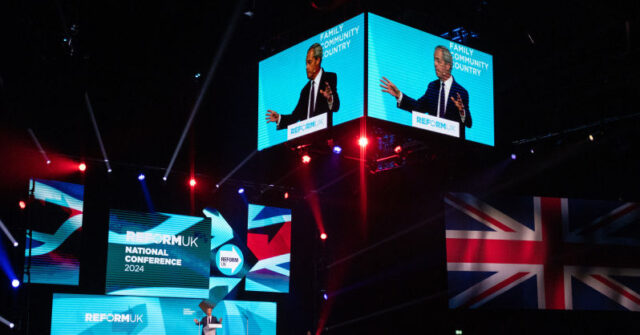Reform UK, under the leadership of Nigel Farage, is rapidly approaching a significant milestone: surpassing the Conservative Party in terms of paid membership. As of Monday, the party reported having over 121,000 members, closely trailing the Conservatives, estimated at 131,680 members. The surge in Reform UK’s membership has been notable in recent months, prompting the party to create a live tracker that will display real-time updates of its membership growth. Farage expressed confidence in his party’s impending success, stating that the membership tracking initiative would showcase Reform UK’s progress toward overtaking the historic Conservative Party.
The Conservative Party, recognized as the oldest political party in the United Kingdom—and arguably the oldest in the world—has a storied history of governance. Over the past century, it has dominated British politics, holding power for roughly 70 years. Despite its long-standing success, the party has faced significant challenges, primarily due to perceived neglect of its voter base. This disconnection is exemplified by the sharp contrast between the party’s tough rhetoric on issues like border control and taxation and its actual policies, which have led to record levels of immigration and high taxation rates. This disconnect has contributed to a tarnished brand, leading some to speculate about a political realignment that’s long overdue, an event that hasn’t occurred in a century.
Currently, many British bookmakers consider Farage the frontrunner for the next Prime Minister, citing the growing momentum of Reform UK as a significant factor in the shifting political landscape. The party’s rapid growth is underscored by its membership numbers skyrocketing from 30,000 in early June to over 100,000 by late November. This increase has been bolstered by strategic recruitment campaigns, including a special £10 membership fee for voters under 25, which reportedly yielded an influx of 1,000 new members within just two days. Reform UK’s membership surged again, reaching 121,096 members at the latest count, solidifying its position as the fastest-growing political party in the UK.
In terms of membership comparisons, Reform UK references the Conservative Party’s 131,680 membership count from the recent leadership election of Kemi Badenoch. The Conservatives’ membership figures are calculated based on individuals who have paid their dues and been active members for at least 90 days before the election, adding a layer of legitimacy to the numbers. Yet, despite the rising membership of both Reform UK and the Conservative Party, both are dwarfed by the Labour Party, which boasts an impressive membership of over 300,000. This situation reflects a broader trend in UK politics, where membership in political parties has significantly declined compared to previous decades, when millions were involved in party politics post-World War II.
As Reform UK inches closer to overtaking the Conservative Party in membership, the political implications are profound. The dynamics of UK politics may be undergoing a transformation, with the potential for a genuine third force to disrupt the traditional two-party supremacy of Labour and the Conservatives. Farage’s assertion that the current climate might favor such a shift raises questions about the future of political alliances and voter loyalty. The rise of Reform UK could signal disillusionment with longstanding parties, particularly among voters who feel their concerns have been largely ignored.
In summary, the rapid ascent of Reform UK as it nears membership parity with the Conservative Party reflects deeper issues within British politics, including party loyalty, electoral trust, and the changing landscape of voter demographics. With Nigel Farage at the helm, the party is not just banking on membership numbers but is also navigating the complex emotions of a disenchanted electorate. Should this trend continue, Reform UK may not only claim the title of the fastest-growing political party but also instigate a significant realignment in British political discourse and governance structures.

